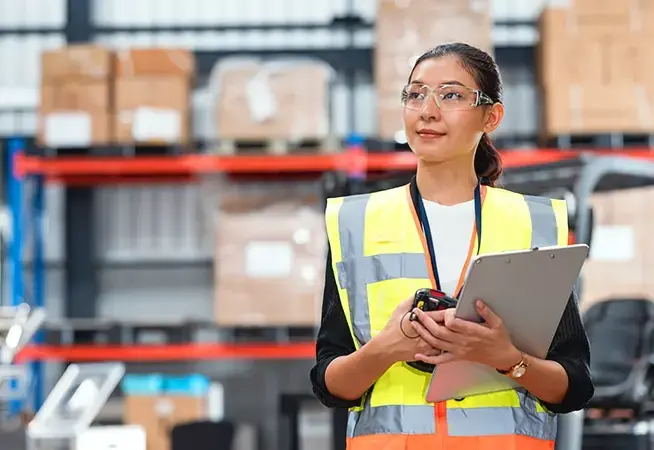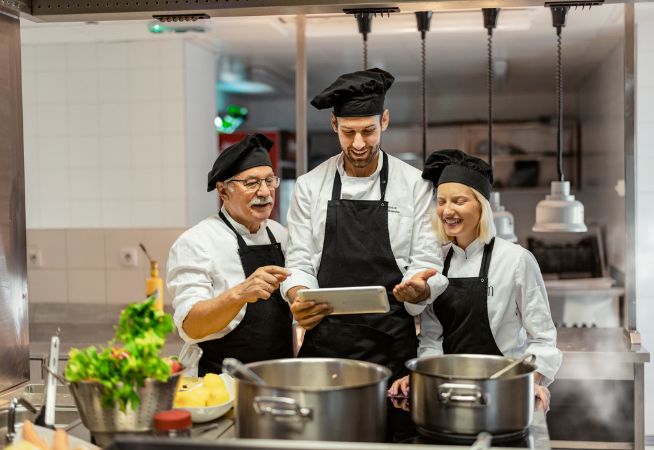13 September 2023
3 Min Read

As the learning and talent development platform trusted by some of the world’s top restaurant enterprises, we’re always looking toward the future of work. Here are three topics on our minds as we continue our mission of designing learning experiences that engage the workforce of tomorrow.
Data-Driven Learning
With rich data, a learning platform can tailor content and experiences to individual learners. Data-driven learning is essential for restaurant enterprises with thousands of employees across the globe. In these work environments, training is about more than just checking the boxes—each training program should connect to an overall business goal, such as better performance, increased sales, or improved customer service.
The right learning platform enables restaurants to associate various learning and development (L&D) initiatives with KPIs that matter to the business. Over time, this allows L&D professionals to determine the ROI of specific training programs, adjust strategies if necessary, and make training more effective. A learning management system (LMS) can provide personalized recommendations and adjust the learning path to suit an employee’s needs by analyzing data about a learner’s progress, preferences, and performance.
Learning data also allows organizations to assess the skills and competencies of their employees more accurately. By analyzing skills data, employers can identify gaps between the current skillset of their workforce and the skills required for future roles. L&D leaders can use this information to inform future training and development initiatives. As workforces grow and organizations become matrixed, data is one way for restaurants to ensure the time and resources spent on learning are put to good use and drive positive outcomes for the business.
Smarter Talent Development
It’s crucial for restaurants to focus on their people as turnover rates reach all-time highs and the industry continues to face severe labor shortages. Developing talent from within is critical to success for restaurants looking to stay ahead and meet each rising challenge of an increasingly complex world. By investing in the growth and development of their employees, restaurants not only attract and retain top talent but also position themselves to excel in dynamic and competitive markets.
Talent development ensures that employees have the skills and knowledge needed to perform their current roles effectively and prepares them for future challenges and leadership positions within the organization. It enhances employee engagement and job satisfaction, reducing turnover and the associated recruitment and onboarding costs. Moreover, talent development fosters a culture of continuous learning, innovation, and adaptability, which is vital in today’s rapidly changing business landscape.
Effective talent development, however, requires intentional effort and investment into training resources and technology that empower people to engage in continuous professional improvement.
A learning platform that connects training with performance management and career paths can help restaurants deliver relevant training throughout the entire employee lifecycle. Data-driven learning and talent development platforms can create personalized learning paths for employees. These paths consider an individual’s current skills, career goals, and the organization’s needs, providing targeted training opportunities that align with both personal and organizational objectives.
Leveraging AI to Transform Learning
Artificial intelligence (AI) transforms learning technology by making workplace learning more personalized, adaptive, and accessible. It empowers learners and training managers to achieve better outcomes and provides valuable insights into the learning process, leading to continuous improvement in L&D strategies that drive business performance.
Adaptive learning platforms powered by AI, for example, adjust the difficulty and content of lessons in real time based on a learner’s progress. Learners are presented with more challenging material as they master concepts and receive additional support in areas where they struggle, ensuring a targeted and customized learning journey.
AI can also process the vast amounts of data learners and training managers generate. It can help identify trends, patterns, challenges, and potential solutions. AI-driven learning platforms can be scaled to accommodate a large number of learners, making workplace learning more accessible across a broad audience.
Learn more about how Schoox helps quick-service restaurants and other foodservice businesses engage learners and transform learning to drive business results.
RELATED RESOURCES



